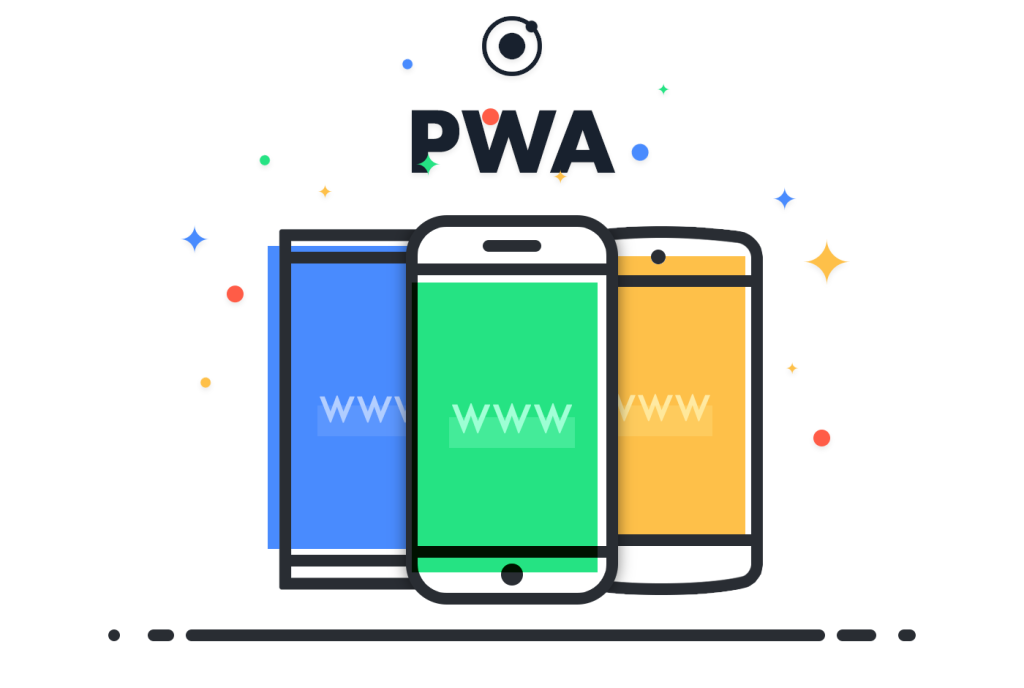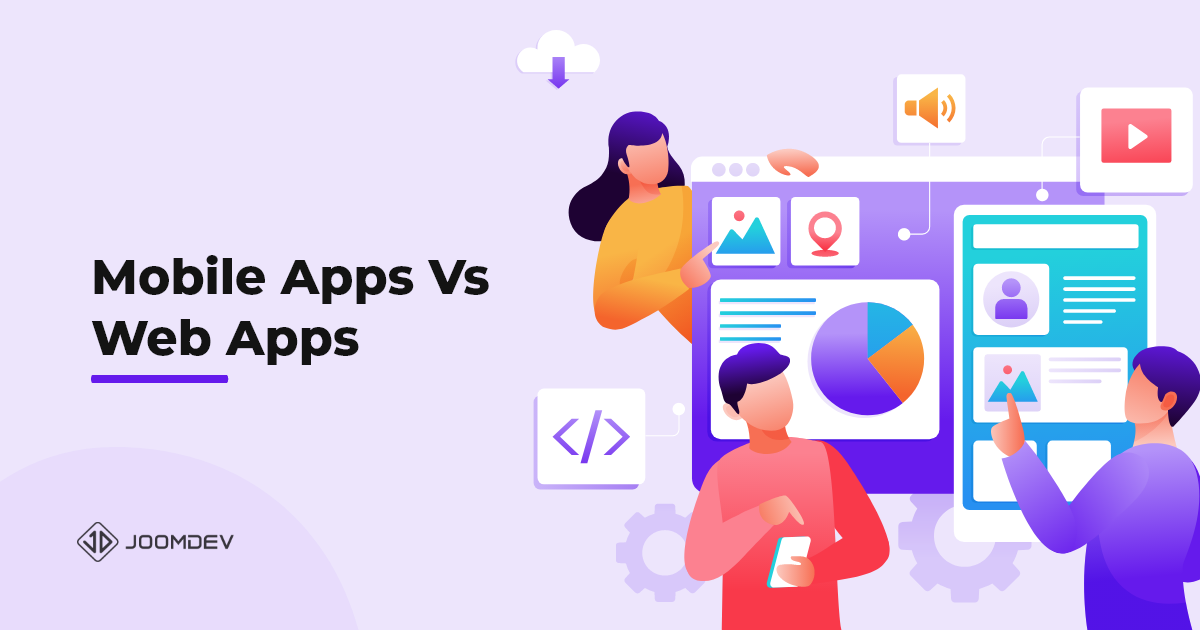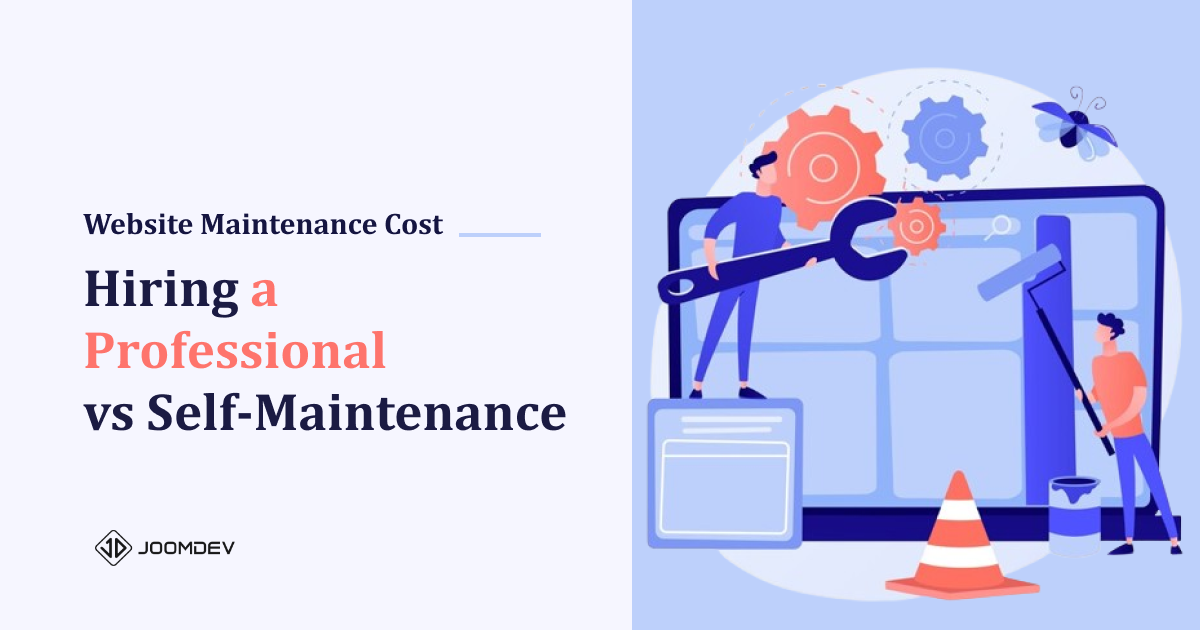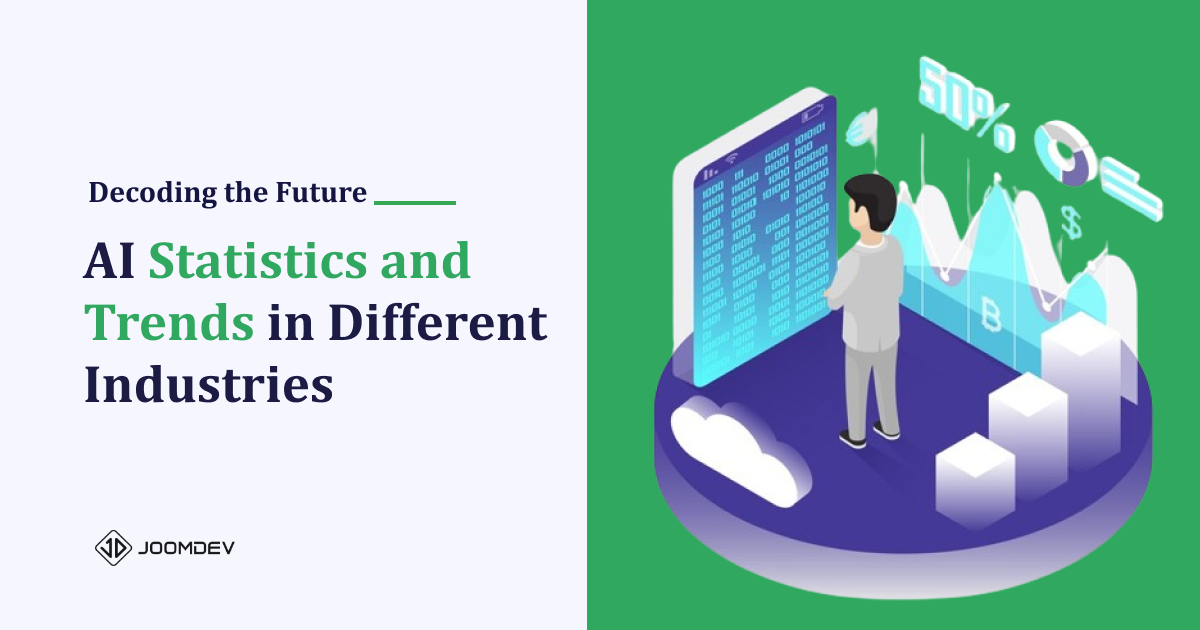Are you confused between mobile apps and web apps?
There are common misconceptions between these two app platforms. From development to deployment, these two are completely different from each other. But before digging into their differences, let’s see some stats and understand why these platforms are booming every day.
For the first time ever, researchers estimate the average adult will spend more time on his or her mobile device than watching TV. The mobile-device average usage is estimated to be around 5 to 6 hours as per the latest reports of 2021.
You can develop a targeted app for your business to grow your clientele. The growth of apps due to the popularity of smartphones is the fastest route to accelerated growth. As the technology for both web and mobile apps has evolved rapidly, organizations have found themselves torn between choosing a mobile app or creating a mobile website.
However, most entrepreneurs don’t know the difference between these two apps platforms. The task of determining which plan is right for them is up to them.
This falls all businesses in a situation where they need to decide between mobile apps and web apps.
But don’t worry!
In our guide, we have covered all the points that will give you a clear understanding of which platform you should choose first – mobile or web application?
So, keep reading!
Mobile Apps vs Web Apps
Mobile Apps vs Web Apps
Mobile apps are software programs designed for phones and tablets. They can be downloaded from an app store, such as Google Play or the Apple Store, and installed on the user’s device. Apps are written to run on specific platforms—such as iOS for Apple iPhones and iPads, or Android for phones and tablets running Android operating systems—and have access to system resources such as cameras. Some of the very well-known apps are Facebook Messenger, Snapchat, Instagram, Twitter, and Tumblr.
On the other hand, Web apps are accessed by a web browser and are highly adaptive to any device. Since web apps are not native to any system and don’t need to be downloaded or installed, they do indeed look and function a lot like mobile apps – resulting in a lot of confusion among users. It’s also important to bear in mind that each web developer needs to master certain skills before developing web apps.
So, now you have a basic idea of what mobile apps and web apps are, let’s dig into more by first knowing how these apps are built.
How are Mobile Apps Built?
Apps developed for mobile devices are generally more expensive than those for the web. In light of the fact that mobile apps are designed for specific platforms like iOS or Android, launching and deploying them calls for starting from scratch. However, mobile apps are faster, provide greater flexibility and more advanced functionality to the users.
Moreover, if you are interested in building mobile apps and want to know which platform you should prefer, then read, Android vs iOS: Which App Platform is Better for Your Business?
Companies often rely on developers to develop native or hybrid mobile apps, but you can also try creating apps yourself if you have some programming skills. In the past, developers had to use a software development kit (SDK) designated for Android, iOS, or Windows Phone to build apps for those devices. Today, you can use intermediary languages like JavaScript in the construction of mobile apps.
Native App
Developers use the appropriate language for each platform when building native mobile apps. For example, Apple devices run on the iOS operating system and are programmed using either Objective-C or Swift. On the other hand, Android apps are written in Java and can be built using either the Android Studio or Eclipse IDE.
Once downloaded from an app store, the apps get stored on users’ devices. Users can access them by clicking on their icons. Many mobile apps are designed to work offline.
Thanks to their privileged access to your device’s hardware and other features, native apps can do more than web apps. Some of the goodies are a camera, GPS, sensors, an address book, or a calendar.
Hybrid App
Hybrid apps are more versatile than native apps. They can use a combination of HTML5, CSS, and JavaScript, which means the coding is done in a way that makes it easier to create an interface that works and looks like a native app.
This is why many developers prefer building hybrid apps for their speed and ease. While these apps can still use features of the portable device they run on, they’re powered by an internet browser, unlike native apps.

Want to develop a mobile app for your startup that run on all the platforms?
Don’t worry, we are here to help you. Let’s book a free consultation call with our expert and let us understand your business and what you want to achieve.
We strategize, design, develop and help your business idea to turn into reality and make it successful.
Pros and Cons of Mobile Apps
Pros
- They are much faster than web apps.
- Provides greater flexibility and functionality to users.
- Available to work in offline mode.
- Since the apps are first approved by app stores, thus they are secured and safe to use.
- It is easier to build thanks to developer tools, interface elements, and SDKs available.
Cons
- They are expensive to build, maintain and update.
- Designed for specific platforms leading to design and development from scratch.
- Difficult to approve by the app store.
How are Web Apps Built?
When building a mobile web app, developers generally use two types of code:
- Client-side script languages
- Server-side code
Client-side programming relies on the users’ web browsers to execute small bits of code that power the app’s dynamic features. To get this, you may need Ember.js developers or React.js specialists to cover your frontend development. Server-side programming is coded in languages such as Python, Objective-C, or Java and handles receiving, storing, and sending information back to the user’s browser. HTML is also used for marking up the interface’s content.
Moreover, a web app can be run by a single developer, or it can be the product of a team led by a software engineer. Such an app receives input from a user and then processes that information before sending back the results to be displayed via the browser on a desktop or mobile device.
Unlike the software development kits (SDKs) for mobile apps, there is no standard software development kit for building web apps. Web app developers can use templates to speed up their production process. But compared to mobile apps, web apps are usually simpler and easier to build—but they offer fewer features.
Pros and Cons of Web Apps
Pros
- Web apps work with web browsers – no need to be downloaded or installed.
- Easy to maintain and automatic updates.
- Easier and cheaper to build than mobile apps.
- Does not need any approval – so can be launched quickly.
Cons
- Offline mode is not available.
- Slower and provides less functionality as compared to mobile apps.
- Unlike mobile apps, they are not having a specific app store – thus the quality and security can’t be guaranteed.
Progressive Web Apps: The Best of Both Worlds

In terms of web development, it is worth knowing about progressive web applications (PWAs). While standard web apps lack some of the functionality that full-blown mobile applications offer, PWAs provide a similar user experience.
Progressive web apps are a new way to use the web. They feel like native apps while using lesser data and giving users a great experience even when they’re offline. All these because of a new feature in the modern browser known as the Application Cache, which allows websites to store large amounts of data on your computer’s hard drive.
Therefore, PWAs can be used in offline mode. This means that they will have some of the same conveniences of mobile apps, such as push notifications, video capture and playback, and offline access to content.
Progressive web apps deliver a high-quality mobile experience. Because they run on a smartphone’s browser, they can be instantly accessed without having to be downloaded or installed. As per Alex Russell, the renowned software developer,
PWAs have all the characteristics of a mobile app; they’re “fresh, safe, discoverable, re-engageable and installable.”
Advantages of PWAs
- Offline working is possible with them.
- With PWAs, you get an amazing app experience without having to develop it.
- The app can be saved directly to the home screen – no need to download.
- To ensure discoverability, it works well with both SEO and SEM.
What Impact do Mobile Apps Have on the User Experience?
Mobile applications have certain impacts on users. Let’s explore them.
Interactive Ways to Engage
You can provide added value to customers by offering a mobile app. Apps take things further than websites by enabling users to interact with their content. For example, Instagram users can view pictures on the web, but they have to use the app if they want to upload photos.
Customization
Apps are essentially tools that help you get things done on your phone, while they also allow you to personalize your experience. Apps also help businesses communicate with customers and deliver dynamic notifications that encourage user engagement and conversions. If you’d like to learn more about creating effective user-centric notification strategies, click here.
Offline Mode
Some apps don’t need to be online to perform their tasks. Although they may have limited functionality when they’re offline, users can still get the information they need if they don’t have an internet connection.
Intuitive Interface
Because apps typically have more intuitive interfaces, they are easy to use. Users can get more involved with their mobile experience. Users who use particular systems may prefer the features of a mobile app that they’re accustomed to using. Responsive websites can’t always guarantee these features, however.
Leverage Device Capabilities
Mobile apps can leverage device capabilities such as the camera, GPS, and location information. Doing this results in a better user experience. For example, retail apps can send flyers to users with info on local deals and events.
What Impact do Web Apps Have on the User Experience?
Even though mobile apps have a lot of features and functionality, web apps have their own impacts on users. Let us see what they are.
Available For All Users
Unlike mobile apps, web apps can be accessed from any mobile device regardless of the operating system, as long as an internet connection is available. However, network access, quality, and speed are all factors that will impact the mobile web experience.
Users Don’t Have To Update
As opposed to mobile apps, users don’t need to install your product on their devices or remember to download new versions and updates; because websites are easy to update, you’ll be able to give your users an enhanced experience without them even noticing it.
Cost-Effective
The cost of developing a mobile app may be high, web apps are a more cost-effective option for some businesses. Enough complexity can qualify a responsive mobile site as an application, meaning it can be more cost-effective than mobile app development.
Conclusion: Which One is Better – A Mobile App or Web App?
By comparing mobile app statistics to web app statistics, mobile apps have more active users. Recent mobile app statistics show that there are over 3.5 million apps available on Google Play Store, and over 2.25 million apps available on Apple App Store.
However, whether you decide to develop a mobile app or a web app will depend on the overall goal of your project. For instance, if you’re creating a game or another self-contained program, a mobile app may be appropriate. But if you want to reach a large audience via the internet, a web app offers greater flexibility.
No matter what platform you choose for your business, it’s always a good idea to seek the advice of an app development company beforehand.
We hope our guide helped you understand the key differences between a mobile app and a web app.
Let us know in the comment section below if you have any questions. We will reply back to you shortly!
Want to Hire a Mobile App or Web App Development Company?
Don’t worry, we are here to help you. Let’s book a free consultation call with our expert and let us understand your business and what you want to achieve.








